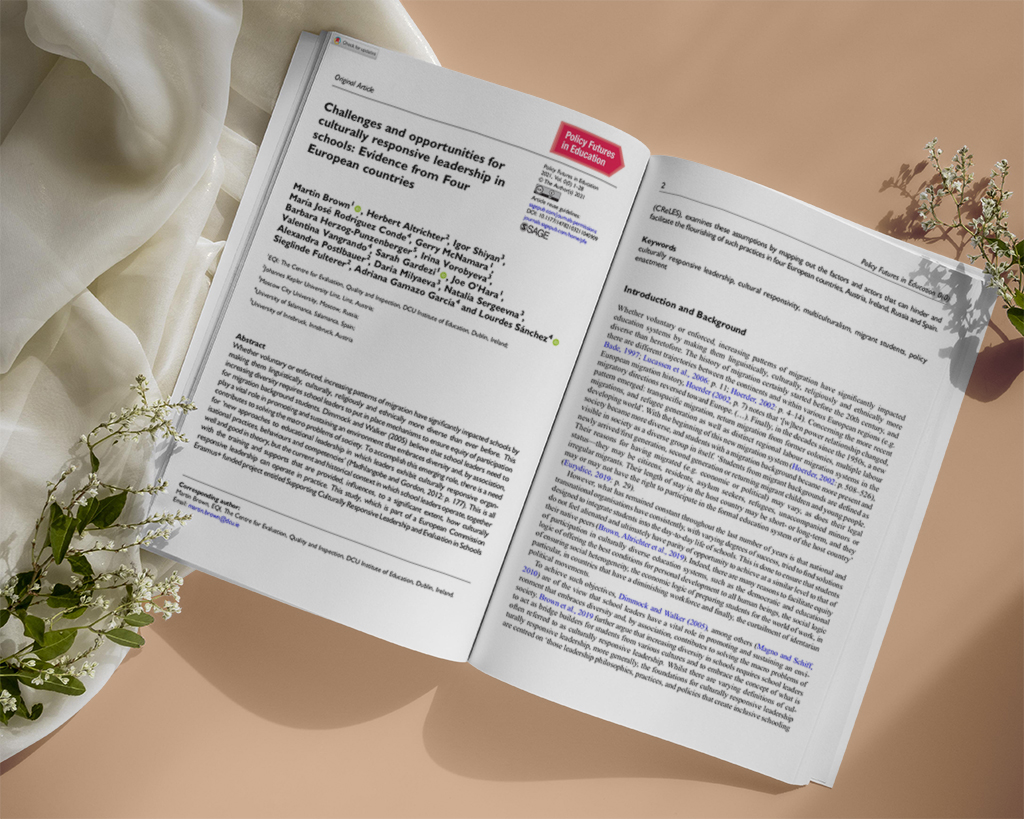School leaders and educators will be interested in the new publication by the MCU and international researchers Challenges and opportunities for culturally responsive leadership in schools: Evidence from four European countries published in the Policy Futures in Education journal indexed by Scopus. The article features the findings of the international research team including Igor Shiyan, Daria Milyaeva, Irina Vorobyeva, and Natalia Ageeva within the Erasmus+ project Supporting Culturally Responsive Leadership and Evaluation in Schools.
The paper is dedicated to the analysis of the factors and actors that can hinder and facilitate the development of culturally responsive practices in the schools of four European countries: Austria, Ireland, Russia, and Spain. The issues related to culturally responsive school leadership become quite urgent due to increasing patterns of migration that have significantly impacted education systems by making them linguistically, culturally, religiously, and ethnically more diverse than before. To ensure the inclusion of students in the school community, there is a need for ‘new approaches to educational leadership in which leaders exhibit culturally responsive organizational practices, behaviors, and competencies.
The article discusses the characteristics of culturally responsive school leadership that impact students’ academic and psycho-social well-being from diverse cultural backgrounds. The authors of the paper conduct a comparative analysis of the hindering and facilitating policies and supports in the four countries that allow for the leadership of schools to ensure that the academic, personal, social and emotional development of culturally diverse students are on a par with their native peers.
The article concludes with a discussion of the research findings derived from this analysis and provides recommendations for future research directions in culturally responsive leadership.
The full text of the article can be accessed from the SAGE Publishing website.

